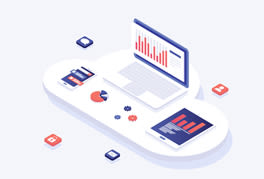Becoming generally available just a few weeks ago, Azure Purview unlocks a litany of data governance capabilities on the Azure data platform. As data lakes explode with massive volumes from disparate sources, more and more data ingestion pipelines are being built to manage that data, and organizations push the envelope on self-serve capabilities and surfacing robust data models for business use, now more than ever there’s a need for dynamic data governance.
Azure Purview is feature-rich offering mechanisms to label, classify, and organize data with a wide range of connectors and automation routines that enable the capabilities at enterprise scale. With huge investments being made to procure, store, structure, and surface data through modern data platforms, there’s heightened awareness to capitalize on the opportunity and achieve a high return on investment by completing the vision in embedding data and analytics in the business. If implemented appropriately and managed well, data governance doesn’t simply need to be an IT asset but can also help immensely in gaining business trust, responding to new needs quickly, and exposing the business to data and analytic capabilities.
In this 30-minute recorded webinarThorogood Consultant Ben Dunmire discusses how we see Azure Purview being useful to enterprise organizations and where we see the opportunity to deploy it.
Data Governance with Azure Purview (27 minutes)
What we cover:
- Key capabilities of Azure Purview, particularly those that have evolved as part of the general availability release
- Exploration of how, where, and why to apply Azure Purview in a modern data platform through a demonstration
- A reflection of opportunities we see to use the tool and how it can help in generating business value
Is it for you?
- Have you implemented a modern data platform and are considering data governance options?
- Are you interested to explore other ways to grow and evolve your data platform?
- Do you have operational needs around data classification, auditing, etc. that you’re interested to automate?
